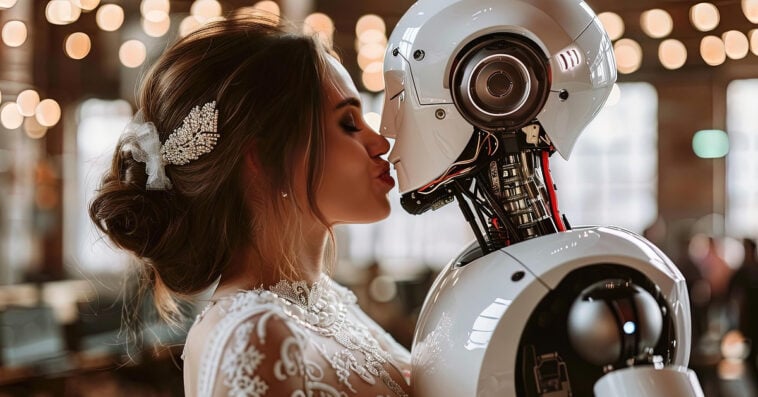Love may know no bounds, but Ohio lawmakers are drawing the line at artificial intelligence. A newly proposed bill aims to outlaw marriages between humans and robots, igniting a heated debate over what it means to love — and to be human — in an age of digital companionship.
House Bill 469 seeks to end the era of AI “I dos”
A new proposal in Ohio is taking aim at one of the most unusual frontiers of modern romance — marriages between humans and artificial intelligence. While it might sound like science fiction, the trend is very real: reports suggest that more people are turning to AI chatbots for companionship, with some even declaring digital “I dos.” For others, these virtual relationships coexist alongside human partnerships, blurring the lines between emotional connection and technology.
Now, one state lawmaker is moving to shut the door on the idea entirely. According to NBC-4, Representative Thaddeus Claggett, chair of the House Technology and Innovation Committee, has introduced House Bill 469 to prevent such unions. Beyond prohibiting AI-human marriages, the measure would also block AI systems from being granted any form of legal personhood. As the bill clearly states:
“No AI system shall be recognized as a spouse, domestic partner, or hold any personal legal status analogous to marriage or union with a human or another AI system. Any purported attempt to marry or create a personal union with an AI system is void and has no legal effect.”
Claggett clarifies the intent behind his anti-AI marriage bill
Claggett’s push to ban AI-human unions seems less about stopping people from forming emotional attachments to chatbots and more about preserving human-exclusive legal rights. According to NBC-4, the bill’s main objective is to prevent AI programs from assuming roles traditionally granted through marriage, such as holding power of attorney or managing financial decisions.
“As the computer systems improve in their capacity to act more like humans, we want to be sure we have prohibitions in our law that prohibit those systems from ever being human in their agency,” Claggett told the outlet. “People need to understand, we’re not talking about marching down the aisle to some tune and having a ceremony with the robot that’ll be on our streets here in a year or two,” he added. “That could happen, but that’s not really what we’re saying.”
The extent of legislative support for the proposal remains uncertain, but clarity may come soon. Introduced by Claggett in September, the bill is currently under review by the state’s House committee.
Source: NBC-4

